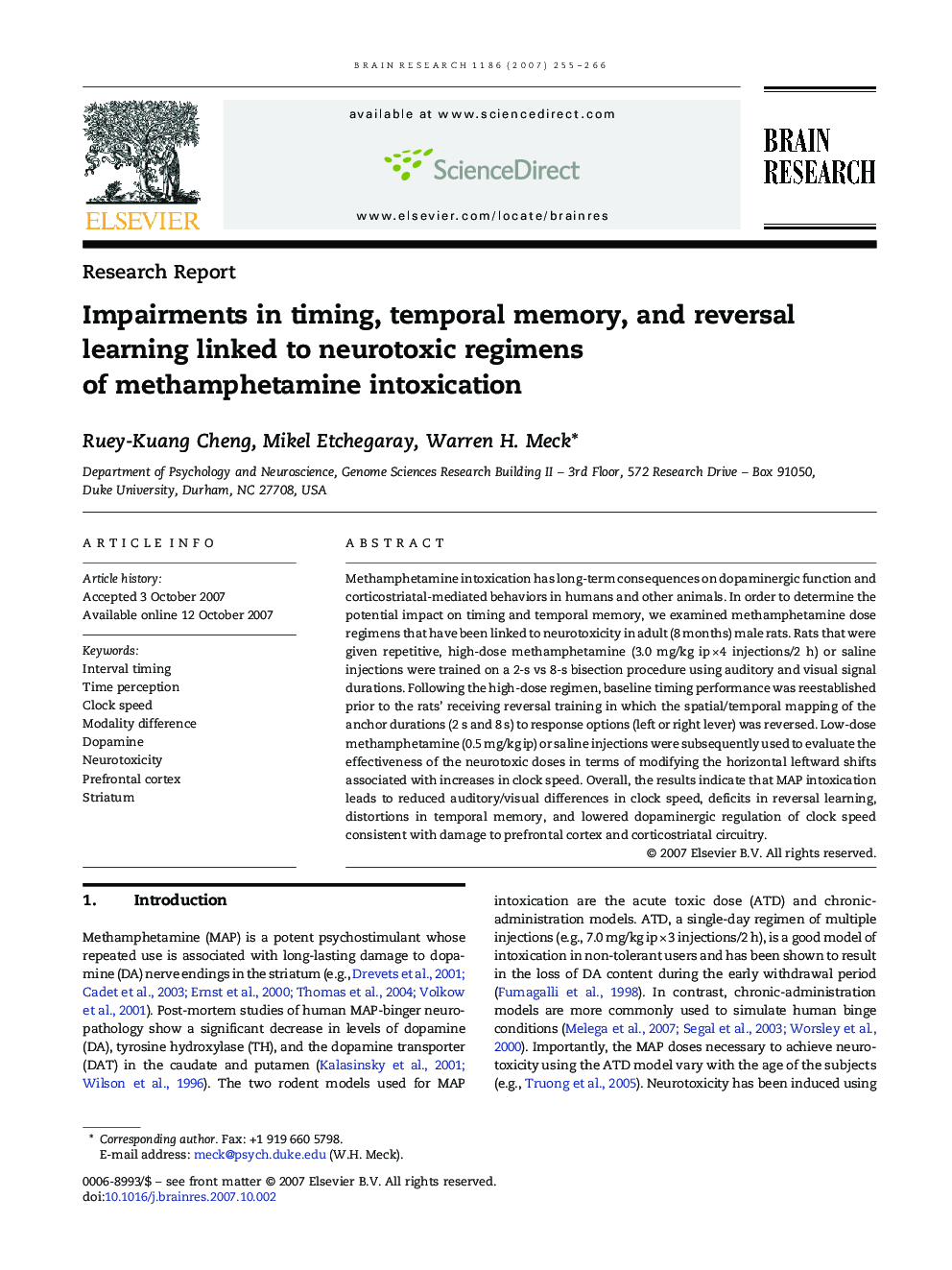| Article ID | Journal | Published Year | Pages | File Type |
|---|---|---|---|---|
| 4330288 | Brain Research | 2007 | 12 Pages |
Methamphetamine intoxication has long-term consequences on dopaminergic function and corticostriatal-mediated behaviors in humans and other animals. In order to determine the potential impact on timing and temporal memory, we examined methamphetamine dose regimens that have been linked to neurotoxicity in adult (8 months) male rats. Rats that were given repetitive, high-dose methamphetamine (3.0 mg/kg ip × 4 injections/2 h) or saline injections were trained on a 2-s vs 8-s bisection procedure using auditory and visual signal durations. Following the high-dose regimen, baseline timing performance was reestablished prior to the rats' receiving reversal training in which the spatial/temporal mapping of the anchor durations (2 s and 8 s) to response options (left or right lever) was reversed. Low-dose methamphetamine (0.5 mg/kg ip) or saline injections were subsequently used to evaluate the effectiveness of the neurotoxic doses in terms of modifying the horizontal leftward shifts associated with increases in clock speed. Overall, the results indicate that MAP intoxication leads to reduced auditory/visual differences in clock speed, deficits in reversal learning, distortions in temporal memory, and lowered dopaminergic regulation of clock speed consistent with damage to prefrontal cortex and corticostriatal circuitry.
